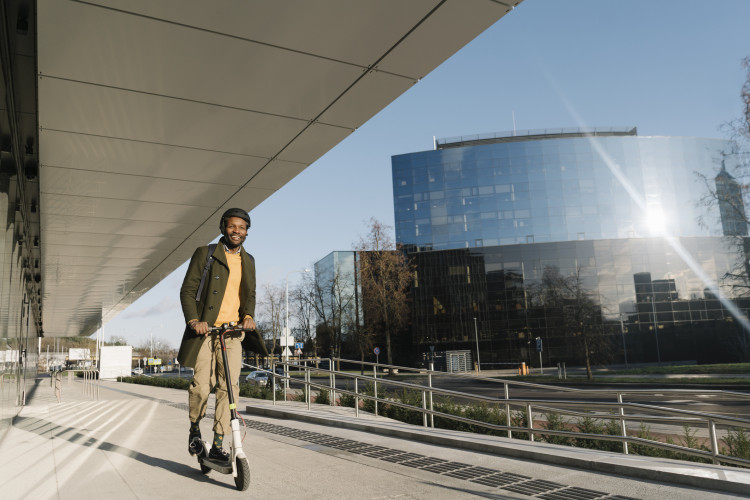It’s four years since I first began advising operators on efforts to regulate for e-scooters in Ireland. Since then, it has been a rollercoaster ride for those wishing to establish shared e-scooter schemes in the Irish market.
Patience is a virtue
An initial period of great excitement and positive anticipation eventually led to frustration and at times, even a sense of hopelessness. The government at one point indicated its expectation the then Road Traffic (Miscellaneous Provisions) Bill 2019 – later to be renamed the Road Traffic and Roads Bill 2021 - would become law in early 2021. In hindsight, it may have been a mistake to bundle in the e-scooter issue with a host of other transport amendments which included management of the M50, CCTV recording and scrambler bikes.
Strong dialogue has been key
The extended period of scrutiny has allowed policy-makers, disability and community advocates, as well as industry the opportunity to collaborate to ensure the legislation reflects the rapid changes in e-scooter technology and safety capabilities that have been evident in recent years. In March 2022, the Joint Committee on Transport Communications showed the importance of this dialogue when it heard expert testimony from Bird, Spin, Zipp Mobility, Lime, Bolt, Voi, Dott and Superpedestrian. While there has been some M&A activity in the sector since those appearances, the appetite to enter Ireland extends to many more operators.
The result of this dialogue is that we have a robust legal framework, signed into law by President Higgins last week. So, what are the key features of the primary legislation as it applies to e-scooters, or personal powered transports (PPTs) as they’re classified as in the Act?
Road Traffic and Roads Bill 2021 – key features
Maximum speed of 25 km/h, lower speed limits on designated roads
Minimum age of 16 to ride an e-scooter
Maximum continuous rate of power output of 0.5 kilowatts
Maximum net weight of 25kg
Fully fitted with front and rear lights, a bell, brakes as well as reflectors
Not allowed on footpaths or motorways

What’s next?
Crucially, the Department of Transport are preparing regulations using secondary legislation that will govern user behaviour and specific vehicle standards. The e-scooter draft technical regulations must be submitted to the EU Technical Regulation Inspection Service (TRIS) under the Single Market Transparency Directive (EU) 2015/1535. This process allows Member States and the Commission to consider whether proposed technical legislation would create barriers to freedom of movement of goods and services within the EU and will take a minimum of 12 weeks to complete. We should expect the e-scooter regulations to come in to force in Q4 of this year.
Local authorities, as is fit and proper, will oversee their own sharing schemes which will, in many instances, involve overhauling byelaws. However, it would be unwise for local authorities not to engage with operators while byelaws are being worked on. Ireland radically needs to shift away from a high dependency on private car usage to a more sustainable, shared mode of transport and e-scooters play a part in this transformative change.

While most operators will be primarily focusing on a potential joint tendering process by Dublin local authorities as well as keeping an eye on Cork, Limerick and Galway, it would be unfortunate to not look further afield. Areas such as Drogheda, Athlone, Navan, Dundalk, Waterford, Kilkenny and Sligo will benefit significantly from shared e-scooter sharing schemes.
My advice to operators is that if you haven’t engaged substantively with local authorities, you need to do so now. Copy and paste solutions from other cities won’t necessarily work in Ireland. Considering local infrastructure needs – which can differ vastly between neighbouring towns and cities - coupled with an operator’s strong track record of safety and reliability will be important criteria for successful tender applicants.
While we’ve come a very long way, things are about to truly scoot off.






